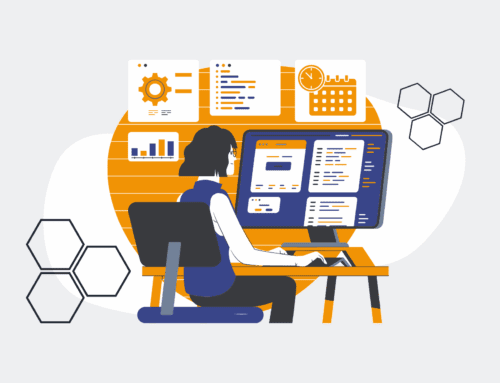Transparent Pricing vs. Custom Quotes: What HR Leaders Need to Know
In today’s rapidly evolving HR landscape, procurement decisions for technology, software, and consulting services are more complex than ever. HR leaders are tasked with balancing innovation, efficiency, and cost-effectiveness, all while ensuring solutions align with long-term strategic goals. A critical juncture in this decision-making process often revolves around pricing models: should you opt for vendors offering transparent, fixed pricing, or pursue those that provide custom quotes?
This isn’t just a financial choice; it’s a strategic one that impacts implementation, scalability, and ultimately, the return on investment. Understanding the nuances of each approach is crucial for making informed decisions that truly serve your organization’s unique needs.
The Allure and Limits of Transparent Pricing
Transparent pricing, often seen with SaaS products or standardized service packages, offers a clear, upfront cost structure. It provides immediate understanding of expenses, simplifying budget allocation and often accelerating the decision-making process. For many HR technologies – think applicant tracking systems with tiered user counts or basic HRIS platforms – this model offers predictability and ease of comparison across vendors. It’s particularly appealing when your organization’s needs are well-defined and align closely with a vendor’s standard offering.
However, the simplicity of transparent pricing can be deceptive. While it offers a low barrier to entry, it often comes with inherent limitations. The ‘one-size-fits-all’ price rarely fits all, especially in complex HR environments. Organizations with unique legacy systems, bespoke integration requirements, or highly specialized workflows may find that transparently priced solutions necessitate costly workarounds, additional third-party tools, or compromises on functionality. This can lead to unforeseen expenses down the line, negating the initial benefit of a clear price tag. What appears simple upfront can quickly become complex and costly when customization or deeper strategic alignment is required.
Embracing Complexity: When Custom Quotes Are Indispensable
On the other end of the spectrum are custom quotes, tailored specifically to an organization’s distinct requirements. This model is typically employed for strategic consulting, complex system integrations, bespoke automation projects, or large-scale transformation initiatives. Custom quotes necessitate a thorough discovery process, where the vendor deeply understands your challenges, existing infrastructure, and desired outcomes before proposing a solution and its associated cost.
The primary advantage here is precision. A custom quote aims to deliver a solution perfectly aligned with your operational realities, addressing specific pain points and maximizing value. This approach is invaluable when dealing with inefficiencies that are deeply embedded, require cross-departmental integration, or demand a unique application of technology and strategy – such as automating a convoluted hiring workflow or integrating disparate HR data sources into a single source of truth. While the process of obtaining a custom quote is often more time-consuming and resource-intensive, involving detailed proposals and iterative discussions, it promises a bespoke fit that can yield significant, measurable ROI by eliminating guesswork and truly optimizing processes.
Strategic Considerations for HR Procurement Leaders
For HR leaders, the choice between transparent pricing and custom quotes isn’t a simple binary; it’s a strategic decision rooted in understanding your organization’s specific context and the nature of the problem you’re trying to solve. Before even engaging vendors, a meticulous internal audit of your current processes, pain points, and desired future state is paramount. Are you solving a common, standardized problem with readily available solutions, or are you tackling a unique, deeply embedded inefficiency that requires a tailored approach?
Beyond Price: Value, Partnership, and Scalability
The “price” of a solution extends far beyond the monetary figure. It encompasses the time and resources required for implementation, the complexity of integration with existing systems, the impact on user adoption, and the long-term scalability of the solution. A lower transparent price upfront might lead to higher operational costs, limited flexibility, or system incompatibility in the future. Conversely, investing in a custom solution, though potentially more expensive initially, can yield exponential returns through optimized workflows, reduced manual effort, and enhanced data integrity – precisely what 4Spot Consulting aims to deliver.
Consider the example of an HR firm we assisted, which was drowning in manual resume parsing and data entry. A transparently priced, off-the-shelf solution might have offered a partial fix, but it wouldn’t have integrated seamlessly with their Keap CRM or provided the necessary AI enrichment. Our custom automation project, leveraging Make.com and AI, saved them over 150 hours per month. This investment, though a custom quote, reflected the true value of eliminating significant manual work and enabled a 240% production increase, proving that the solution’s impact far outweighed the initial cost.
4Spot Consulting’s Perspective: Clarity Through Automation
At 4Spot Consulting, our extensive experience across dozens of SaaS systems and diverse HR environments consistently demonstrates that clarity is the foundation for successful technology and service procurement. Regardless of whether you ultimately opt for a transparently priced SaaS tool or a custom automation project, a thorough understanding of your current operational landscape and your precise desired future state is absolutely critical. Without this clarity, both pricing models carry risks: transparent pricing might lead to under-delivery, and custom quotes might miss the mark due to ill-defined scope.
Our OpsMap™ diagnostic is specifically designed for this purpose – to conduct a strategic audit that uncovers inefficiencies, surfaces high-impact automation opportunities, and blueprints a roadmap for profitable systems. This diagnostic provides HR leaders with the objective, data-driven insights needed to effectively evaluate any vendor’s offering. It ensures that when you encounter transparent pricing, you can assess its true fit and identify potential gaps, and when you seek custom quotes, you can articulate your needs with precision, guaranteeing a tailored solution that drives measurable business outcomes and saves your high-value employees significant time. It’s about making every investment, fixed or flexible, strategically sound and outcome-driven.
If you would like to read more, we recommend this article: CRM Backup for HR & Recruiting: Essential Data Protection for Keap & HighLevel








